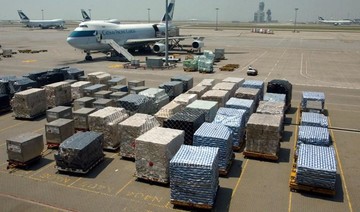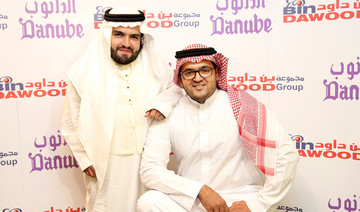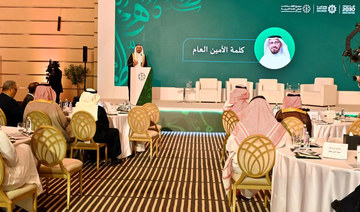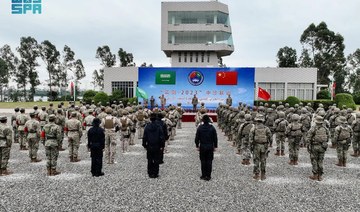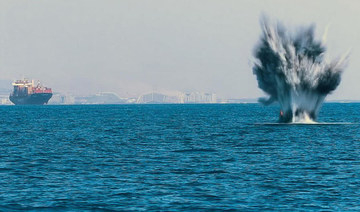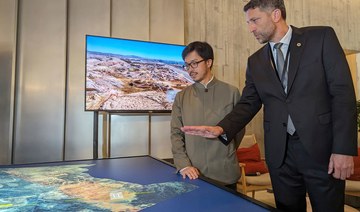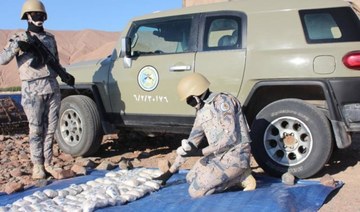RIYADH: E-commerce has seen a significant upturn in Saudi Arabia recently. Several options for online buyers now exist that were simply not available even 10 years ago. But how reliable are those local options?
Online portal Marouf was developed by the Ministry of Trade and Commerce in collaboration with Thiqah Business Services. Marouf allows vendors and customers to sell, buy, and communicate with each other all in one place.
The service was introduced in 2016, and has since amassed over 20,000 registered sellers offering a wide variety of products including electronics, cosmetics, and even homemade food.
However, Al-Eqtisadiah newspaper reported on January 20 that Marouf received more than 19,700 complaints last year from customers buying a range of items including electrical appliances, cosmetics and clothing.
In a statement, the Ministry of Trade and Commerce assured users that 99 percent of the complaints had been resolved, and that steps were being taken to improve the services available on the platform.
Online trading has faced a number of obstacles in Saudi Arabia. Long before local options were available, people were having difficulty ordering merchandise online, due in no small part to the inability to ship items to Saudi Arabia, and the lack of clarity in Saudi postal addresses. 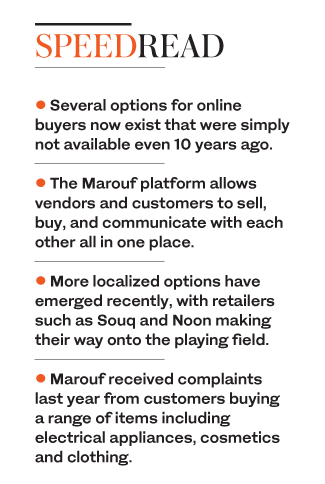
“Currently, I use Aramex as a shipping service, which lets me order items to a US address and have them sent here,” said Riyadh resident Danah Kurdi. “Before that, I struggled ordering anything off the internet. I would have items shipped to family members living abroad and have to wait for them to visit us here in Saudi to receive them.”
“I’ve made the mistake of using my Saudi P.O. box as a shipping address before,” said Sarah Al-Sayyid, an office worker in Riyadh. “Half my items never reached me, and the other half were over six months late.”
Localized options
More localized options have emerged recently, with retailers such as Souq and Noon making their way onto the playing field. But even they have had problems.
Souq.com was purchased by online retail giant Amazon in 2017. UAE-based retailer Noon launched later that year as a contender, backed by Saudi Arabia’s Public Investment Fund and other private investors. Both have been presented as local options for those unable to purchase items from abroad, but both have less-than-stellar reputations among their target audience.
Malek Teffaha, a marketing manager from Dubai, spoke to Arab News about an experience he had had with Souq.com. “I bought a Nintendo Switch Pro Controller during the White Friday sale, but when I received it, I found that the item was actually a fake,” he said.
Contacting customer support was largely unhelpful. To Teffaha, it seemed like they had no proper protocols in place to deal with his situation.
“They offered me a refund at one point, and even told me I could keep the item, but still ended up sending a courier to pick it up. Twice. It’s seriously surprising coming from an Amazon-owned company. I expected them to be better than this.”
Criticism
The incident ended with Teffaha blasting the company on social media, which gained a fair amount of traction, especially when people who had bought the same item noticed that theirs were also fakes.
But to Teffaha, the final nail in the Souq coffin was when they deleted his review of the item, emailing him to inform him that it should have been classified as a complaint.
“This means they can continue to mislead people,” he said. “The people from customer service have told me that this is a problem they want to work on, but I honestly doubt it.”
Seeta Alsubaie, a student from Riyadh, had a similar issue. “I bought something which ended up being poor quality, so I requested a refund and called support. I wrote a review about the product, but they refused to share it because they classified it as a complaint.”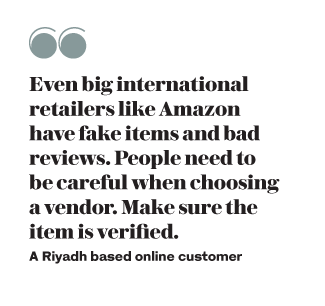
She was also critical about the efficiency of the delivery service. “You can set your preferred delivery times, which I requested to be after school hours. I’ve ordered from Souq three times now and every time their courier has called me in class, and when I told them I wasn’t home and to come back at my preferred time, they simply sent my items back to the warehouse and told me they would come back again the next day, and ended up doing the same thing.
“I still haven’t received my refund,” she added. “It’s been months since I requested it.”
Noon hasn’t fared much better. The company has less than two stars out of five on most review websites, with the majority of users complaining that their items never showed up, ended up being poor quality, or were different to the product that was advertised.
“I bought an iPad off Noon during a sale, (and it) was clearly fake,” said Mansour Alomran, who lives in Jeddah. “That was over a year ago, and I still haven’t been refunded. My calls and messages to customer support have been completely ignored.”
However, there are some who have defended the companies, saying that people just need to be careful which vendors they purchase items from on their platforms.
“Even big international retailers like Amazon have fake items and bad reviews,” said Thamer Alfuraiji from Riyadh, “You just have to be careful when choosing a vendor. Make sure the item is verified. I’ve ordered several items from Souq and never had a problem.”





